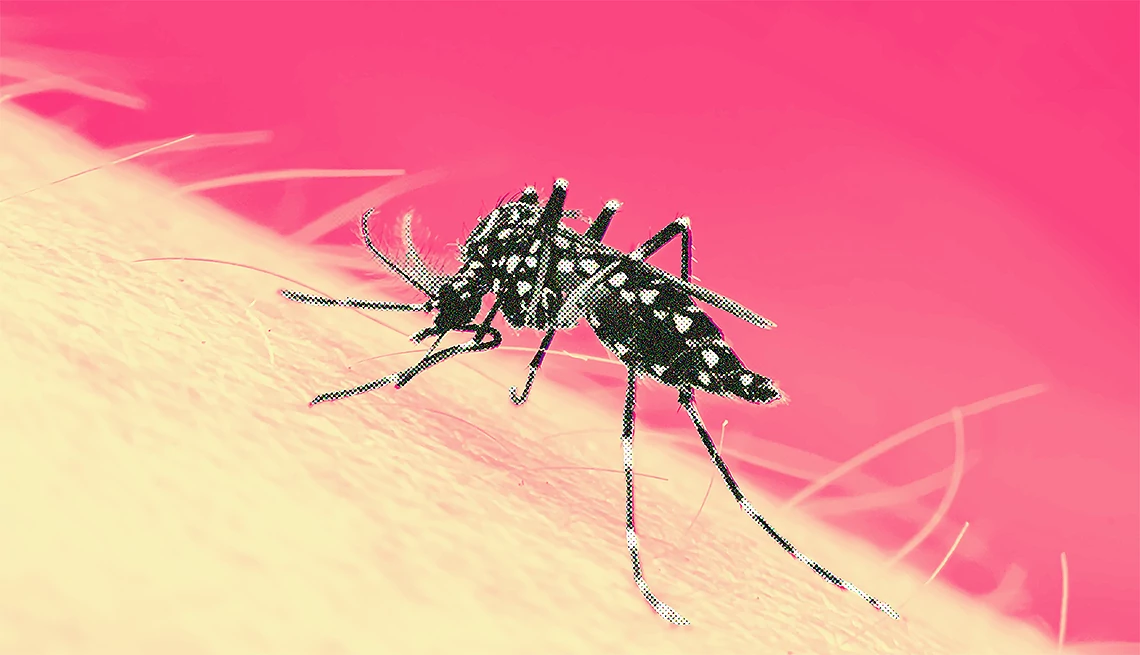AARP Hearing Center


About 13 million cases of dengue virus were reported in North, Central, and South America and the Caribbean in 2024, and health officials say transmission rates remain high this year, as well.
In the U.S., most cases of dengue are detected in travelers, but according to the Centers for Disease Control and Prevention (CDC), locally acquired cases of the mosquito-borne virus have been reported in Florida, Texas, Hawaii, Arizona, and California.
So far this year, the U.S. has clocked 2,331 cases of dengue; there were 10,288 cases in 2024. And the CDC says cases will likely keep climbing as global temperatures increase. The 10 warmest years on record have all occurred in the past decade, data from the National Oceanic and Atmospheric Administration shows. Higher temperatures expand the range of the mosquitoes that transmit dengue.
In addition to changing weather patterns, the swell in cases could also be due to more testing, says Michael Friedman, M.D., a global public health expert and former CDC chief medical officer, epidemiologist and country director.
“But regardless of that, this increase is a concern for sure,” he says.
What is dengue?
Dengue is a disease that’s caused by four related viruses commonly found in tropical regions that can be transmitted to humans by an infected mosquito from the Aedes species, according to the National Foundation for Infectious Diseases. This type of mosquito also carries the Zika and chikungunya viruses.
A dengue infection doesn’t always cause a person to get sick, but those who do get sick typically experience symptoms that are similar to many other viral infections. The most common symptom is a fever (the illness is sometimes called dengue fever) that can be paired with:
- Aches and pains behind the eyes
- Muscle, joint or bone pain
- Nausea or vomiting
- Rash
For some people, the illness is mild and clears in about a week. For others, a dengue infection can become severe — even life-threatening — and older adults are among the populations at higher risk for a serious case. A previous dengue infection can also increase risk for a severe case.
About 5 percent of people who have symptoms from a dengue infection will go on to develop severe disease, the Cleveland Clinic says. Warning signs of a severe dengue infection include:



































































More on Health
The Blood Type Mosquitoes Crave
4 surprising reasons mosquitoes attack you
Smart Guide to Sun Protection
45 ways to stay safe in the sun
Recommended for You